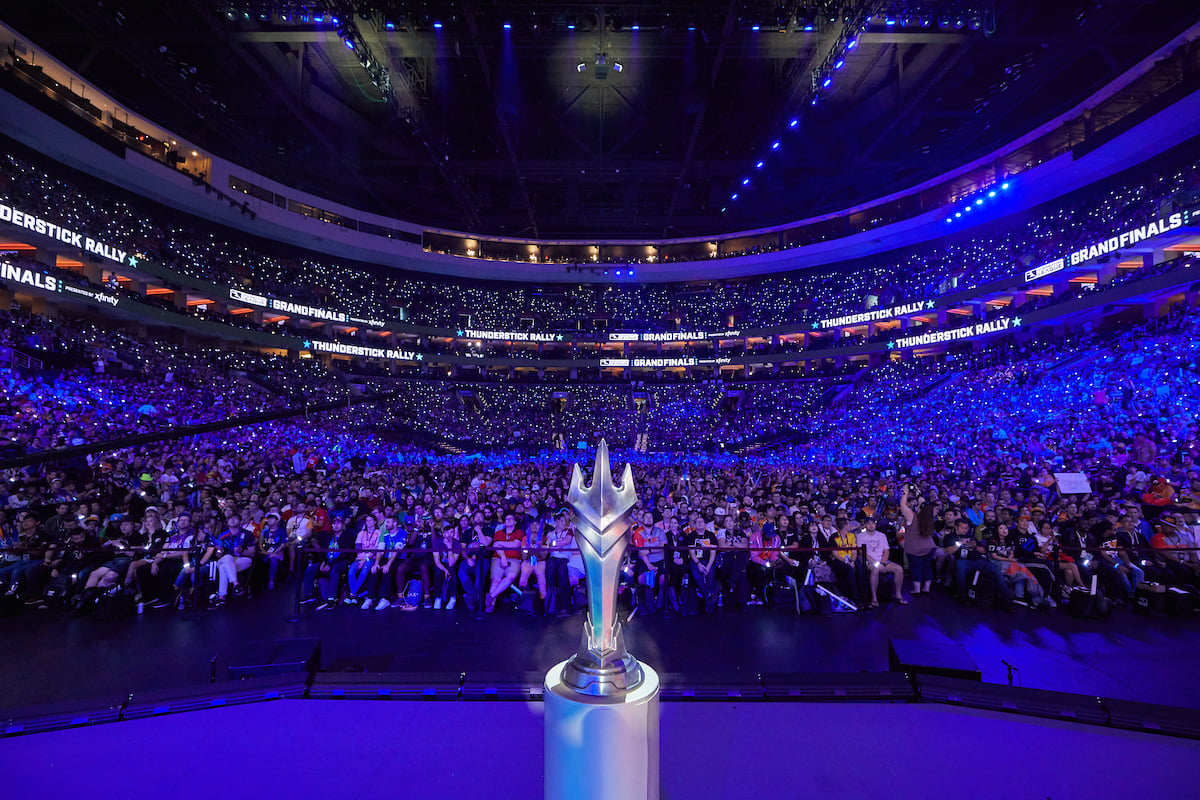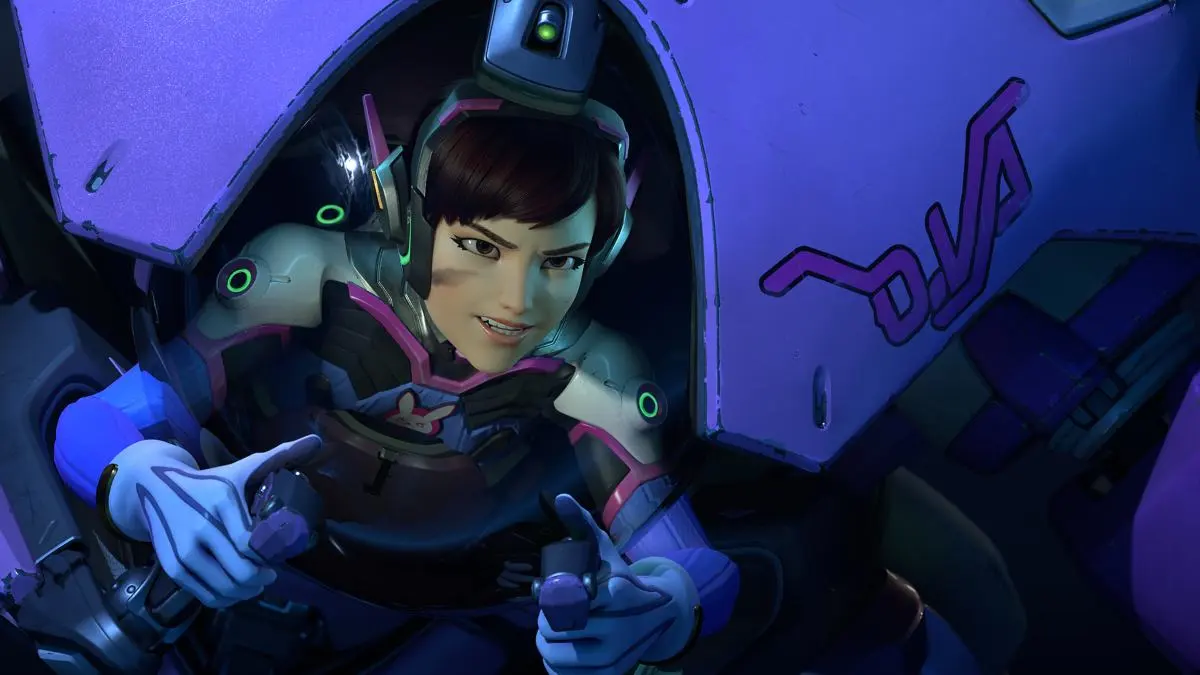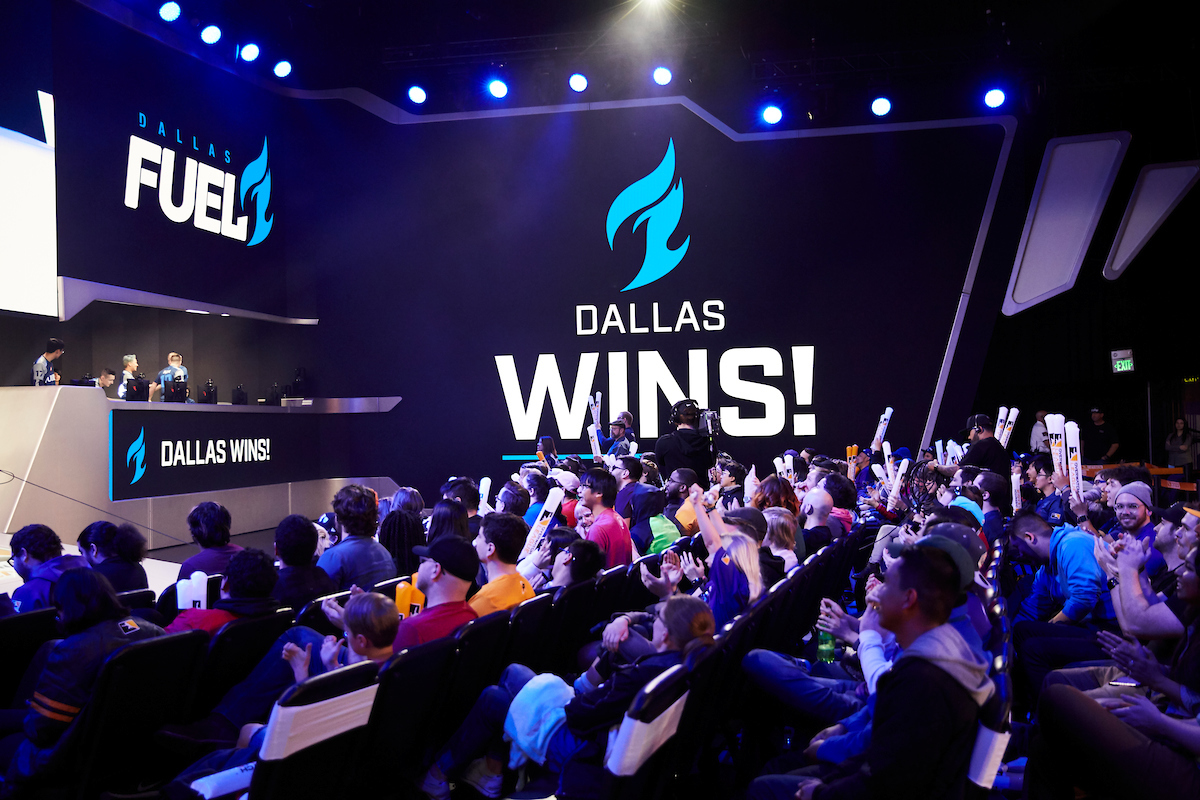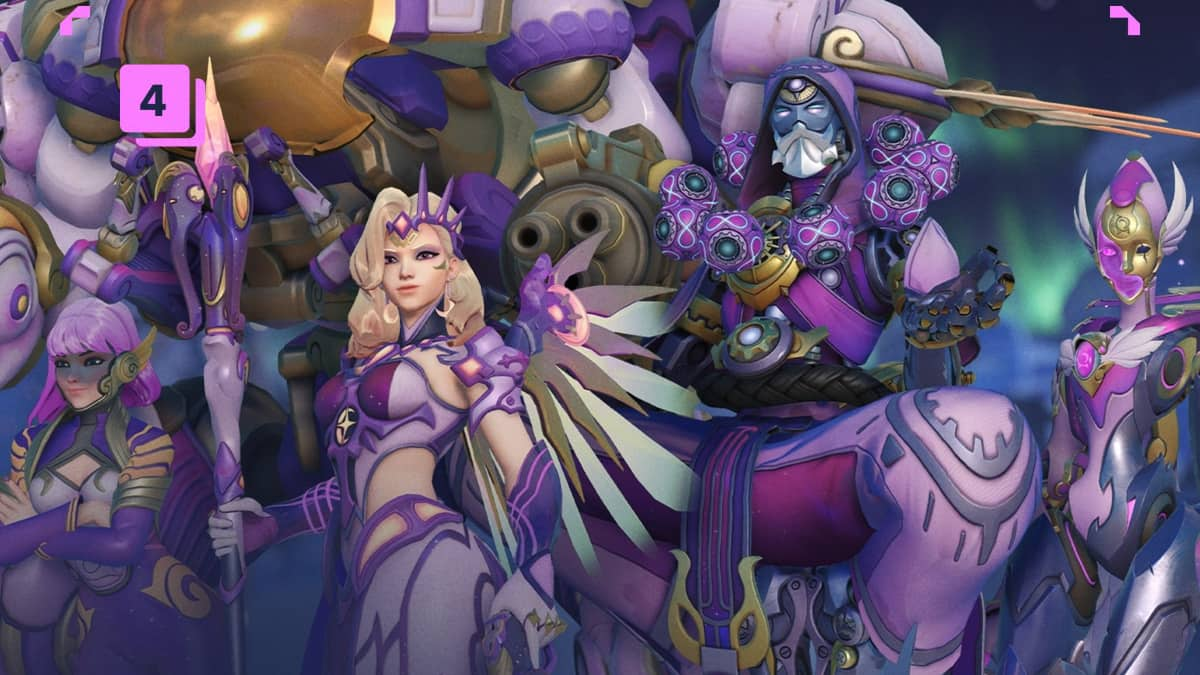Esports fans across the globe can attest to the fact that 2020 has been a challenging and often heartbreaking year. The Overwatch League is far from alone in having to drastically shift its original season plans. Staff and teams had to develop and execute an online tournament competition model with remote production after COVID-19 destroyed the potential of city-based homestand games.
Though this season has been difficult, monthly tournament models have provided excitement for fans and an incentive for teams to keep their drive, even without the reward of audiences or stage time. All of these tournaments have built up the hype for the 2020 Overwatch League Grand Finals, the details of which were mysterious until an announcement from the league earlier today.
Teams will participate in regional brackets that mimic the monthly tournament structure until two top squads are crowned in each region. North American teams will fly to South Korea, quarantining for two weeks before participating in an online Grand Finals bracket. While this solution is a far cry from the screaming crowds of the Staples Center in the 2019 Grand Finals, these plans give international teams a chance to meet on an even playing field.
What fans don’t see, and may not understand, is the incredible amount of work and coordination required to build a postseason amid this constantly-changing global climate.
Safety and integrity
Adam Mierzejewski, the senior manager of competition operations for the Overwatch League, has been working alongside teams and general managers to help create a postseason that’s fair and, most importantly, safe.
“Planning this postseason has been a group effort for months as we constantly solicited feedback from all 20 teams,” Mierzejewski told Dot esports. Lead strategy manager Aditya Rudra agreed, saying their staff used feedback from every Overwatch League team to build this path to the postseason.
Living and thriving during COVID-19 has been more difficult for certain teams, which the logistics staff took into account. “We have been in constant communication with [all the teams] during this transition to hear each of their own unique situations during these unprecedented times,” Mierzejewski said.
Teams wanted a clear path to the playoffs, no matter how “grueling” that path was, Rudra said. Thus, single-elimination “knockout” brackets with low-seeded teams will occur before double-elimination brackets begin. Every team has a chance, no matter how minimal, to climb to the top.
It’s no surprise that this postseason closely mirrors the monthly tournament structure that’s been wildly successful for the Overwatch League. “The shift to online play this season gave us the opportunity to experiment with various online tournament formats, and we are leveraging our learnings each time to improve our formula,” Rudra said.
No LAN, fewer problems
While the lead-up to the Overwatch League Grand Finals is always exciting, the true spectacle lies at the conclusion of the endless brackets. In normal years, the 2020 Grand Finals would be held as a LAN competition in a massive sports arena, packing in tens of thousands of fans ready to watch the top two teams compete. This year, the biggest concern on the minds of staff is player safety and the fairness of competition.
A LAN would be nearly impossible to hold anywhere in the world due to safety concerns for both players and staff, according to Mierzejewski and Rudra. The best solution for them was to have teams travel to the safest possible place and compete online to avoid high latency, which can affect player performance.
While fans may be disappointed that a LAN isn’t in the cards, they need to understand that safety comes first. “We are confident that we’ve put together the best possible experience for our fans while keeping everyone as safe as possible,” Mierzejewski said.
Two teams based in North America will travel to South Korea and quarantine for 14 days as per global safety guidelines. After that period, they’ll be able to compete in facilities for the Grand Finals matches, still isolated from other teams. The two teams based in Asia who qualify for the Grand Finals bracket will be allowed to stay in their current facilities.
Even then, none of this is set in stone. No one knows what the world could look like by late September. No concrete dates or locations have been given for Grand Finals matches because things may change by then. The logistics team insisted that safety is, above everything else, the top priority.
“We’re excited to have all teams have a chance in the postseason and ultimately have the opportunity to crown one champion of the 2020 Overwatch League season, but we won’t hesitate to shift plans if we need to do so to help keep everyone safe,” Mierzejewski said.
Connection amid challenge
The process of building an online season, not to mention a competitive and fair postseason, seems impossible to many people. Some, however, enjoy the puzzle.
“While the sudden rise of a pandemic has been challenging for everyone, I’ve found myself more connected with teams than ever before,” Mierzejewski said, noting he’s been working with teams since before the league began in 2018 and had rarely seen this level of communication.
Rudra echoed that sense of collaboration. “Our postseason plan is the amalgamation of ideas from league staff, Overwatch League team and player collaboration, and fan feedback,” he said.
When the 2020 Overwatch League Grand Finals take place, wherever and whenever they may be, the end result will be the final step in a season full of setbacks and nearly insurmountable obstacles. For the dozens of staff members working unseen behind cameras on endless logistics planning, 2020 is a testament to their tenacity.
“I’m proud of how hard our teams worked on not just being the best they can be in-game, but also working alongside us to redefine the landscape of our 2020 season and the future of the league as a whole,” Mierzejewski said.






Published: Jul 15, 2020 04:27 pm